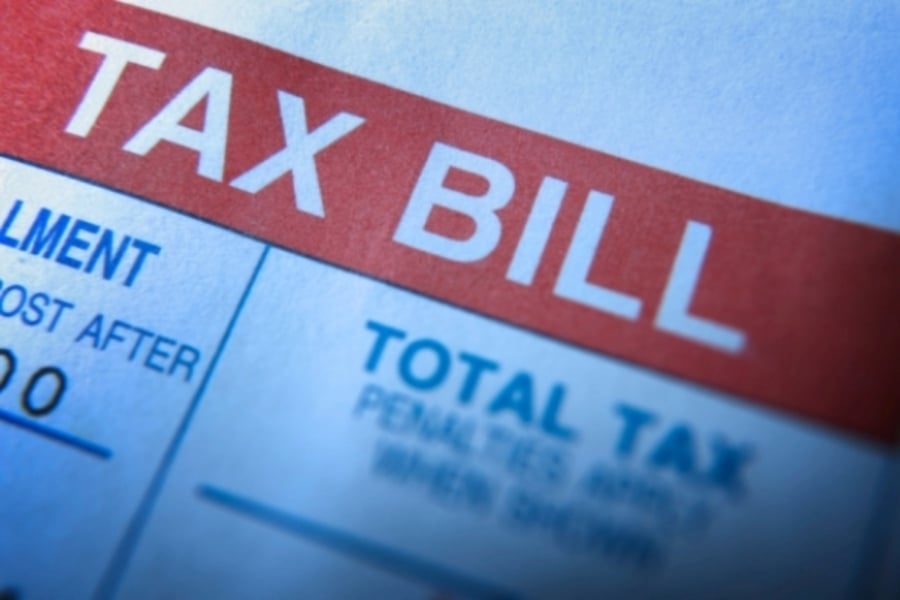

Republican lawmakers accused Democrats of undermining retirement savings with a provision for a stock-buyback tax that is included in climate and health care spending legislation that gained Senate approval over the weekend.
The Senate voted along party lines, 51-50, on Sunday to pass the Inflation Reduction Act, a $790 billion bill that includes $386 billion in funding for climate-change and energy initiatives as well as $98 billion for health care programs, according to an analysis by the Committee for a Responsible Federal Budget.
The bill also contains about $468 billion in tax measures to pay for the spending and to achieve a net deficit reduction of $305 billion. The tax provisions include a 15% corporate minimum tax and an increase in IRS funding to strengthen enforcement. The spending and taxes occur over a 10-year period.
The bill advanced through the Senate on a special parliamentary procedure that sidestepped a filibuster. Vice President Kamala Harris voted for the bill to break the 50-50 tie. The House is expected to vote on the bill later this week.
Republican members of the House Ways & Means Committee didn’t wait for House debate to start to attack a provision in the bill that would impose a 1% excise tax on corporate stock buybacks by public companies. They asserted that the tax would erode returns on corporate stocks and diminish the value of 401(k) and individual retirement plans.
“Democrats are threatening companies that return value to retirees or to 401(k) plans or to pension plans with a punitive tax,” the Ways & Means GOP said in a statement on Friday. “Their unvetted stock buybacks tax is a crippling tax that reduces retirement security for American seniors.”
The House lawmakers based their argument in part on an analysis by Americans for Tax Reform, a conservative tax advocacy organization, which said retirement accounts hold the largest share of corporate-sponsored funds.
“When companies perform stock buybacks, these investors are the ones who benefit,” Mike Palicz of ATF wrote. “A tax on buybacks could dissuade companies from conducting this action and negatively impact retirement savings.”
Democrats said the tax on buybacks -- which is based on legislation introduced last year Senate Banking Committee Chairman Sherrod Brown, D-Ohio, and Senate Finance Committee Chairman Ron Wyden, D-Ore. -- was a way to stop an abuse of the tax code.
“Rather than investing in their workers, mega-corporations used the windfall from Republicans’ 2017 tax cuts to juice their stock prices and reward their wealthiest investors and their executives through massive stock buybacks,” Wyden said in a statement. “Even as millions of families struggled through the pandemic, corporate stock buybacks once again hit all-time highs. Stock buybacks are currently heavily favored by the tax code, despite their skewed benefits for the very top and potential for insider game-playing. My proposal with Senator Brown simply ends this preferential treatment and encourages mega-corporations to invest in their workers.”
The stock buyback tax is one of the few from a litany of tax increases on corporations and the wealthy that were included in the original $3.5 trillion Build Back Better bill last year. That legislation was whittled down to the Inflation Reduction Act in order to garner enough Democratic support in the Senate.
The 1% buyback tax is not likely to change corporate behavior but it could grow in future legislation as a spending offset, said Jaret Seiberg, managing director at Cowen Washington Research Group.
“That means there is both a risk that it increases higher than 1% in the coming years and that it is extended to keep it from expiring in 10 years as now scheduled,” Seiberg wrote in an analysis.

Driven by robust transaction activity amid market turbulence and increased focus on billion-dollar plus targets, Echelon Partners expects another all-time high in 2025.

The looming threat of federal funding cuts to state and local governments has lawmakers weighing a levy that was phased out in 1981.

The fintech firms' new tools and integrations address pain points in overseeing investment lineups, account monitoring, and more.

Canadian stocks are on a roll in 2025 as the country prepares to name a new Prime Minister.

Carson is expanding one of its relationships in Florida while Lido Advisors adds an $870 million practice in Silicon Valley.
RIAs face rising regulatory pressure in 2025. Forward-looking firms are responding with embedded technology, not more paperwork.
As inheritances are set to reshape client portfolios and next-gen heirs demand digital-first experiences, firms are retooling their wealth tech stacks and succession models in real time.
